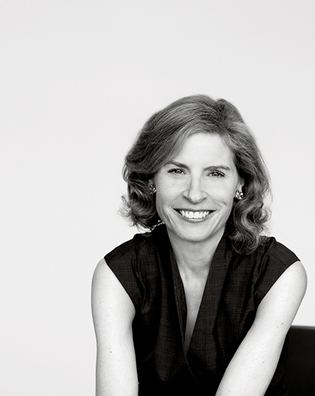 loading
loading
Where They Are NowTech, scrappy cities, and violaTelecommunications expert Susan Crawford '84, '89JD, has been quitting jobs steadily since 1986.  harvard law schoolSusan Crawford ’84, ’89JD, a law professor at Harvard, has written three books on tech and data and is now writing a book on sea level rise. The connection? We need “collective action,” says Crawford. This interview has been condensed and edited. View full imageSusan Crawford ’84,’89JD, started thinking about privacy and the internet as a young DC lawyer in the 1990s, long before Facebook and Amazon took off. Now the John A. Reilly Clinical Professor of Law at Harvard, Crawford is an expert on telecommunications policy. She served as President Obama’s special assistant for science, technology, and innovation policy early in his first term. She has published three books on tech and data—Captive Audience, The Responsive City, and Fiber: The Coming Tech Revolution—and is writing a book on civic engagement and sea level rise in Charleston, South Carolina. Interviewer Clay Shirky ’86 is the vice provost for educational technologies at NYU and the author of several books about the internet.
Then I had a ton of debt, so I became a partner in a Washington law firm [WilmerHale] with David Cutler, quit that, and started over again to be an academic in 2003. Got tenure in two places and quit both. Then I was asked to work on the Obama transition team, where I told them I didn’t want a job, which apparently is the secret to getting jobs. I became, briefly, a White House staffer. And then I quit that and came up to Harvard. I was very lucky to be recruited by Professor Martha Minow [’79JD], who saw the importance of these tech policy issues and social justice issues.
CS: You’re best known for your work on tech policy. Did you start concentrating on that at Yale, or at Wilmer?
SC: At Wilmer. The commercial internet shows up in ’94, ’95, and I was a young lawyer, so I started working on internet policy. When Yahoo was cool, I was their outside privacy lawyer in Washington. I got very involved in the formation and governance of ICANN, which oversees domain names. That felt like jury duty for the internet, painful and dehydrating, but I’m glad I did it. I started writing about telecommunications policy in 2003 and that got me the attention of the Obama transition team.
But I also began to notice how many good actors there were in government and how interesting the issue of technology used by government was. And that led me to the second book. And that led me to write about the scrappy cities building their own fiber networks, and that was the origin of Fiber. Talking about fiber with the mayor of Charleston led me to ask about sea level rise, which has many similar characteristics.
Charleston, in some corners, gives me a lot of hope. There are terrific young people there who absolutely love their hometown and want to make sure that it isn’t doomed. And cities, I think, eventually will shame the nation into action. That’s my hypothesis. Part of my role, my calling, is just to keep reminding people that the status quo didn’t arrive by accident and is not immutable. Americans at their best do understand that you can’t build the Hoover Dam, you can’t have the highway system, you can’t protect the nation without a well-functioning, well-staffed, well-paid, effective government.
I’ve been fortunate enough to align my values and my strengths with what I do, which is teaching and talking and writing. And I don’t regret any of the steps I’ve taken. I get to play the viola every day.
|
|
2 comments
-

Joly MacFie, 7:57pm February 29 2020 |  Flag as inappropriate
Flag as inappropriate
-

Joly MacFie, 10:16pm February 29 2020 |  Flag as inappropriate
Flag as inappropriate
The comment period has expired.I was fortunate enough to video a Crawford viola performance in 2020. https://youtu.be/wIEGIAGOXa4
I mean 2010! And trying html... https://youtu.be/wIEGIAGOXa4